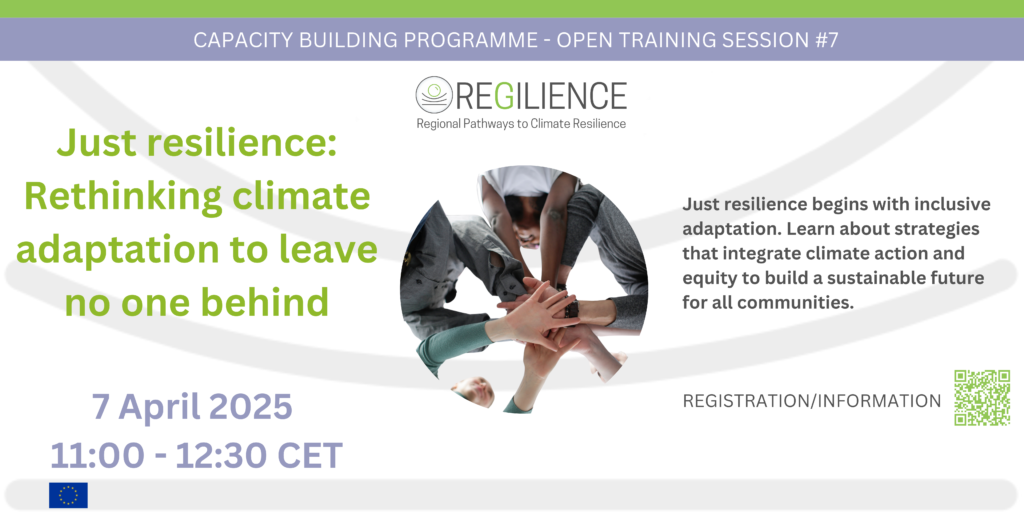
Human-caused climate change is exacerbating extreme weather events across Europe, leading to widespread impacts. While the climate crisis affects the entire continent, the degree of vulnerability varies significantly depending on geographic location and socio-economic conditions. Children, the elderly, people with chronic health issues, low-income communities, and women are particularly at risk from climate extremes. Those already disadvantaged due to lack of resources, access or power are expected to experience the most severe effects, with climate change likely to deepen existing inequalities.
In light of this reality, adaptation strategies must be inclusive and fair, tackling the disparities that increase vulnerability to climate impacts. This approach will help prevent maladaptive practices and ensure no group is left disadvantaged. Emphasizing justice throughout the planning, implementation, and monitoring phases of climate adaptation—across all levels of governance—will encourage meaningful participation from vulnerable groups in decision-making. This, in turn, will help alleviate the unequal distribution of climate risks and ensure fairness in how the benefits and burdens of adaptation are shared.
Leaving no one behind is a crucial aspect of recent and upcoming EU climate adaptation policies. For instance, just resilience plays a central role in both the UN 2030 Agenda and the new EU Adaptation Strategy, highlighting the EU’s commitment to supporting a just transition through various policies and funding mechanisms. Similarly, the EU and its Member States have made significant strides in assessing how climate risks are distributed among different groups, as evidenced by the 2024 European Climate Risk Assessment (EUCRA) report. While distributive justice is increasingly integrated into adaptation planning, aspects of procedural and recognitional justice still need more attention. However, with ongoing efforts, there is growing momentum toward improving societal preparedness. Although policy implementation has faced challenges, there is a clear recognition of the urgent need for coordinated action at all governance levels, which is driving positive changes in adaptation efforts.
As part of its Open Training Sessions (OTS) to build regional adaptation capacities, the REGILIENCE project invites interested parties to an OTS focused on Just Resilience. This session aims to equip regional and local actors with knowledge and tools to address climate change impacts equitably, ensuring active involvement of all communities, with a focus on gender equality and the inclusion of vulnerable groups, while exploring best practices and solutions for fostering inclusive climate resilience across Europe.
Agenda :
- Welcome and Introduction | Nadège Seguel and Lesly Mercedes Barriga Delgado (REGILIENCE)
Characterising future socio-economic changes for enhancing climate change risk analysis and just adaptation planning | Nina Pirttioja (SYKE)
Occupational heat stress, adaptation strategies, and prevention polices in Italy: insights from the Worklimate 2.0 Project I Marco Morabito (National Research Council – Institute of BioEconomy)
Ready for the next heatwave? CoolCo’s urban transformation to foster heat adaptation among vulnerable populations | Zsófia Anna Ghira (University of Padova and CoolCo’s – Cooling Corners and Corridors)
Transforming Playgrounds. Where climate and gender meet I Blai Martí Plademunt (Barcelona City Council)
- Q&A Session | Discussion with the presenters
- Wrap-up and closing